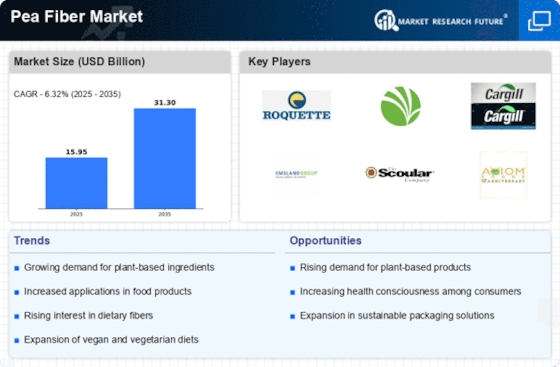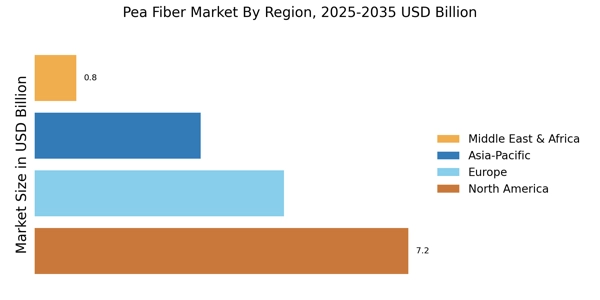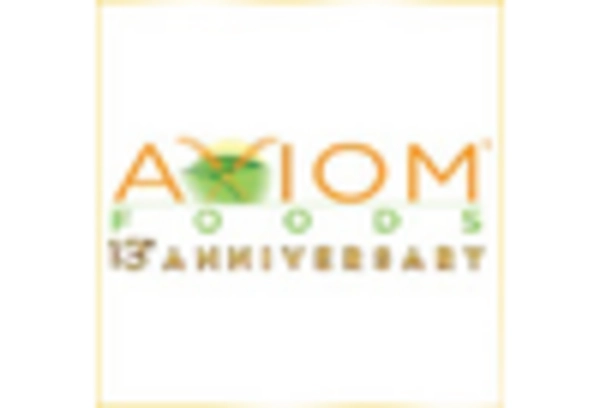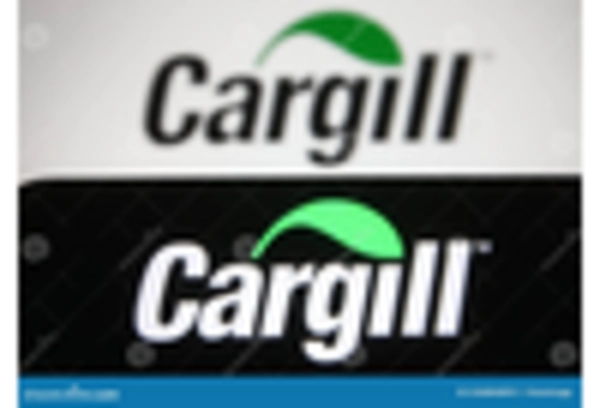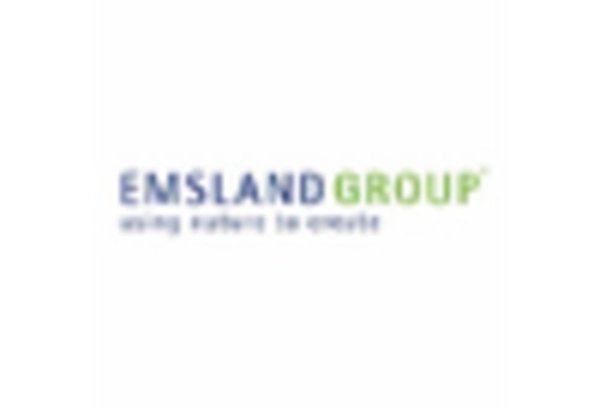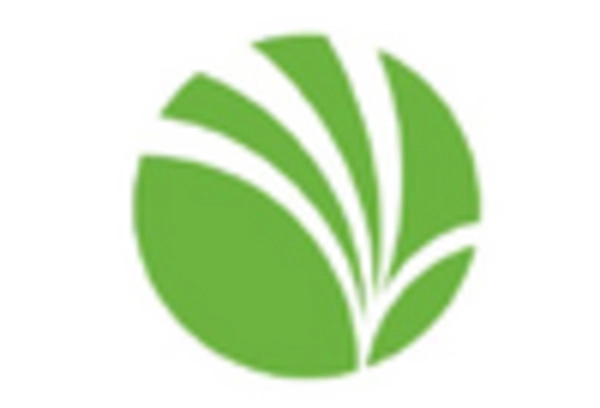Versatility in Food Applications
The versatility of pea fiber in various food applications is a notable driver for the Pea Fiber Market. It can be utilized in a wide range of products, including baked goods, snacks, and meat alternatives, enhancing texture and nutritional value. The food industry is increasingly recognizing the benefits of incorporating pea fiber, as it can improve moisture retention and extend shelf life. Recent market analyses suggest that the inclusion of pea fiber in formulations can lead to a 20% increase in fiber content, appealing to health-conscious consumers. This adaptability positions pea fiber as a key ingredient in the evolving landscape of food innovation.
Health Consciousness Among Consumers
The increasing awareness of health and wellness among consumers appears to be a primary driver for the Pea Fiber Market. As individuals seek to improve their diets, the demand for high-fiber foods has surged. Pea fiber, known for its nutritional benefits, including aiding digestion and promoting satiety, is becoming a preferred choice. Recent data indicates that the fiber market is projected to grow at a compound annual growth rate of approximately 8% over the next few years. This trend suggests that consumers are gravitating towards products that not only satisfy hunger but also contribute to overall health, thereby propelling the Pea Fiber Market forward.
Regulatory Support for Health Claims
Regulatory bodies are increasingly supporting health claims associated with dietary fibers, which is likely to benefit the Pea Fiber Market. As governments and health organizations promote fiber intake for its health benefits, products containing pea fiber may gain favorable attention. This regulatory backing can enhance consumer trust and encourage manufacturers to highlight the health benefits of their products. The market for dietary fibers is anticipated to witness a growth rate of around 7% annually, driven by these supportive regulations. Consequently, the Pea Fiber Market stands to gain from this trend as more products are developed to meet regulatory standards.
Sustainability and Environmental Concerns
Sustainability has emerged as a crucial factor influencing consumer choices, particularly in the Pea Fiber Market. As environmental concerns rise, many consumers are opting for plant-based ingredients that have a lower ecological footprint. Peas, being a nitrogen-fixing crop, require fewer resources compared to traditional fiber sources, making them an attractive option. The market for plant-based fibers is expected to expand, with projections indicating a potential increase in demand for pea fiber by 15% in the coming years. This shift towards sustainable practices not only aligns with consumer values but also encourages manufacturers to innovate and incorporate pea fiber into various products.
Rising Popularity of Vegan and Vegetarian Diets
The growing popularity of vegan and vegetarian diets is a significant driver for the Pea Fiber Market. As more individuals adopt plant-based lifestyles, the demand for plant-derived ingredients, including pea fiber, is on the rise. This dietary shift is not only about personal health but also encompasses ethical and environmental considerations. Market Research Future indicates that the plant-based food sector is expected to grow by 10% annually, with pea fiber playing a crucial role in enhancing the nutritional profile of meat substitutes and dairy alternatives. This trend suggests that the Pea Fiber Market is well-positioned to capitalize on the increasing consumer preference for plant-based options.


